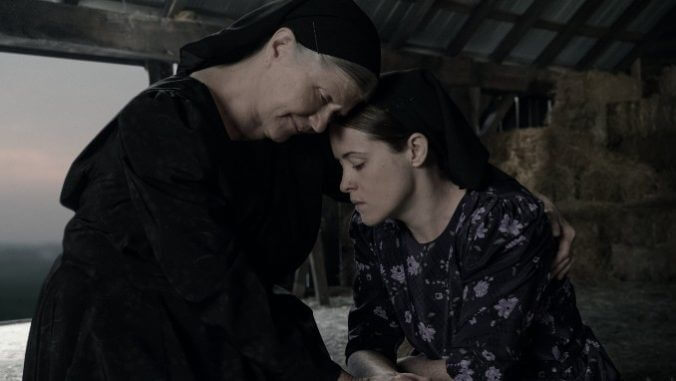Women Talking Is an Important Conversation, Running in Circles

The gap separating Sarah Polley’s last picture, Stories We Tell in 2012, from her latest, Women Talking, has left plenty of time for anticipation to build: Sarah Polley! 10 years! Her return to the big screen after biding her time with a Netflix miniseries! There’s a narrative behind Polley’s unintended recess, taken for varied reasons that include job paucity and an injury that kept her from work for about half the decade. Absence makes the heart grow fonder, and Women Talking’s release feels exactly like that: A release, a long-awaited liberation from director purgatory for Polley and a breath of fresh air for her audience.
With this in mind, the film’s problems add up to one major king bummer. There’s joy to take in Polley stepping behind the camera again, but none in the movie’s failures, given Polley’s immense talent as a filmmaker and her extended absence from filmmaking. The poetry, grace, and warm humor she brought to Stories We Tell, Take This Waltz (2011), and Away From Her (2006), is in Women Talking too, but delivered with stilted form, like a forced smile upon receiving bad news with the expectation that the recipient keep their chin up.
Women Talking has mostly bad news to go around. A party of women gather in a farmhouse settled on their remote Mennonite colony with a clear objective: making a judgment over whether or not to leave. The colony’s men have drugged and raped the colony’s women countless times over countless years and manufactured various flavors of bullshit to explain the attacks away: ghostly visitations, demonic abuse, or female hysterics, because apparently one can be made heavy with child through the power of sheer imagination. The film begins after the truth has been laid bare to all, and the women discuss and ponder and argue with one another: Ona (Rooney Mara), Mariche (Jessie Buckley), Salome (Claire Foy), Greta (Sheila McCarthy), Agata (Judith Ivey), Mejal (Michelle McLeod), and their youngest members, Nietje (Liv McNeil), and Autje (Kate Hallett).
-

-

-

-

-

-

-

-

-

-

-

-

-

-

-

-

-

-

-

-

-

-

-

-

-

-

-

-

-

-

-

-

-

-

-

-

-

-

-

-








































